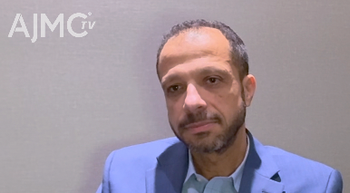
How Smoking Cessation Affects Cardiovascular Disease Risk Over Time
Key Takeaways
- Light ex-smokers quickly reduce CVD risk to levels similar to never-smokers, while heavy ex-smokers take over 25 years to achieve comparable risk levels.
- The study used data from the Korean National Health Insurance Service, covering a large population with comprehensive health records.
New study findings reveal that the risk of cardiovascular disease among light ex-smokers aligns quickly with never-smokers, while heavy ex-smokers may take over 25 years to reach the same level.
A dose-dependent association has been identified between smoking and
The retrospective Korean population-based cohort study is published in
“To the best of our knowledge, this is the largest and most comprehensive study on the association between the cumulative amount of smoking, lifetime smoking burden, elapsed time after smoking cessation, and CVD risk,” wrote the researchers of the study. “Notable strengths include the use of a large database of participants and well-refined data.”
Cigarette smoking is a major cause of CVD and is responsible for 1 in every 4 CVD deaths. Furthermore, estimates show that smoking increases the risk for coronary heart disease almost 4-fold and for stroke by 2 to 4 times compared with not smoking.2
In this study, the researchers aimed to evaluate the quantitative association between smoking cessation and subsequent CVD risk in association with the lifetime smoking burden and time elapsed after smoking cessation.1 The study utilized data from the Korean National Health Insurance Service (NHIS) database, covering participants with complete smoking histories from 2006 to 2008, followed through 2019. The NHIS, which covers nearly 97% of the South Korean population, includes extensive health records, including inpatient and outpatient data, diagnostic codes (International Classification of Diseases, Tenth Revision [ICD-10]), and lifestyle behaviors.
Participants underwent biennial health screenings, including blood tests, physical exams, and self-reported questionnaires on smoking habits. Ex-smokers were defined as those who quit smoking once and never resumed, while current smokers continued throughout the follow-up period. The study excluded individuals with ambiguous smoking histories or prior CVD.
Key outcomes such as myocardial infarction, stroke, heart failure, and CVD-related death were tracked using ICD-10 codes, with cause of death verified through the National Death Index. Statistical analyses were used to calculate CVD incidence rates, estimating HRs, and adjustments for covariates like age, sex, lifestyle factors, and comorbidities.
Overall, 5,391,231 participants (39.9% male; mean [SD] age, 45.8 [14.7] years; 853,756 [15.8%] current smokers; 104,604 [1.9%] ex-smokers; and 4,432,871 [82.2%] never smokers) were followed up for a mean 4.2 (4.4) years.
The median (IQR) baseline cumulative smoking amounts were 14.0 (7.5-20.0) pack-years (PY) in current smokers and 10.5 (5.3-20.0) PY in ex-smokers. The median duration of smoking cessation was 4 (2-8) years for ex-smokers. CVD incidence rates were 3.37 per 1000 PY for never-smokers, 4.68 per 1000 PY for ex-smokers, and 6.03 per 1000 PY for current smokers.
The adjusted HRs for CVD risk compared with never-smokers were 1.13 (95% CI, 1.10-1.15) for ex-smokers and 1.22 (95% CI, 1.20-1.24) for current smokers. A dose-dependent relationship was evident between smoking and CVD risk, with ex-smokers with a lifetime smoking burden of less than 8 PY showing a rapid reduction in CVD risk within 10 years of cessation, similar to never-smokers. In contrast, heavy ex-smokers (≥ 8 PY) had a slower decline in CVD risk, with residual risk persisting for over 25 years.
The researchers noted the study has several limitations. First, it could not establish causality, and potential confounding factors may still have been present despite adjustments. Second, smoking data were based on self-reported questionnaires, which may not accurately reflect actual smoking behavior, and objective measures like urine cotinine tests were not used. Third, the study's focus on a homogeneous population of only Asians limited its generalizability.
Despite these limitations, the researchers believe the study underscores the long-term impact of heavy smoking on heart health.
“These results have important implications for clinical practice and public health,” wrote the researchers. “Regardless of smoking cessation status, smoking and CVD risk exhibit a clear dose-response association, emphasizing the importance of preventing smoking initiation altogether.”
References
1. Cho JH, Shin SY, Kim H, et al. Smoking cessation and incident cardiovascular disease. JAMA Netw Open. 2024;7(11):e2442639. doi:10.1001/jamanetworkopen.2024.42639
2. Health effects of cigarettes: cardiovascular disease. CDC. September 17, 2024. Accessed November 14, 2024.
Newsletter
Stay ahead of policy, cost, and value—subscribe to AJMC for expert insights at the intersection of clinical care and health economics.














